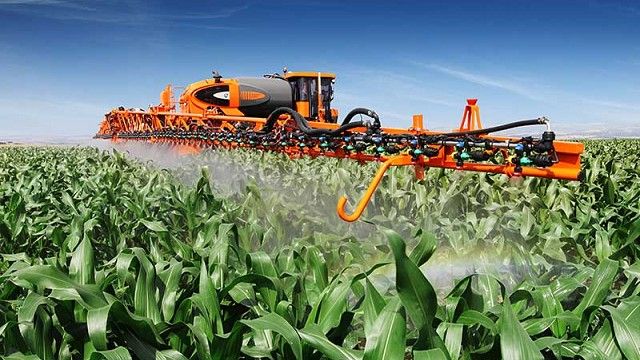
In recent years, agricultural machinery has undergone significant innovations that have transformed the way agricultural operations are carried out. These innovations have not only improved the productivity and efficiency of agricultural operations, but have also contributed to the sustainability of the sector.
Automation and artificial intelligence
One of the main areas of advancement has been automation and the use of artificial intelligence (AI). Autonomous tractors and harvesters, equipped with GPS navigation systems and advanced sensors, allow for more precise work and harvesting. AI optimizes cultivation routes and techniques, reducing fuel use and minimizing environmental impact.
Autonomous tractors can work for hours without the need for human intervention, increasing efficiency and reducing labor costs. Additionally, these tractors are equipped with systems that can detect obstacles and adjust their route accordingly, improving safety in the field.
Combines, on the other hand, are being equipped with sensors that can identify and classify crops during the exact moment of harvest. This technology not only improves harvest quality but also reduces waste by ensuring only mature crops are harvested.
In addition, drones and agricultural robots are being used to monitor the health of crops, detect pests and apply fertilizers and pesticides in a more targeted way, which reduces the use of chemicals and protects the environment. These devices can cover large areas of land in a short time, collecting detailed data that allows farmers to make informed decisions about managing their crops.
IoT technologies
Another innovation is the implementation of Internet of Things (IoT) technologies in machinery. Internet-connected sensors collect real-time data on soil conditions, weather, and crop growth. This information allows farmers to make more informed and accurate decisions, optimizing irrigation and nutrient application.
Smart irrigation systems, for example, can automatically adjust the amount of water delivered to crops based on weather and soil conditions. This not only improves water use, but also ensures that crops receive the amount necessary for their growth, which can increase yields.
Additionally, soil sensors can measure a variety of parameters, such as humidity, temperature, and nutrient levels. This information allows farmers to adjust their soil management practices to improve soil health and crop productivity.
Hybrid and electric machinery
Hybrid and electric machinery is also gaining ground. These devices, which combine electric motors with combustion engines, offer a more sustainable and efficient alternative in terms of energy consumption. Reducing greenhouse gas emissions is an additional benefit that contributes to the fight against climate change.
Electric tractors, for example, are quieter and produce less vibration than conventional tractors, improving operator comfort. Additionally, they have fewer moving parts, which reduces maintenance costs and extends the life of the equipment.
Hybrid equipment, which uses both electrical energy and fuel, offers an intermediate solution that allows farmers to benefit from the advantages of both types of energy. These equipment can run on electric power during operations that require less power, such as transporting crops, and switch to fuel when more power is needed, such as during harvesting.
Precision farming
Precision agriculture is another area where innovations in agricultural machinery are having a significant impact. This technique uses detailed crop and soil data to optimize agricultural practices, which can improve yields and reduce costs.
Machines equipped with precision agriculture technology can apply fertilizers and pesticides more precisely, reducing the use of these inputs and minimizing their environmental impact. Additionally, planting density can be adjusted based on soil and climate conditions, improving productivity and efficiency.
Precision agriculture also allows farmers to monitor crop growth in real time and adjust their management practices accordingly. This can help identify problems such as diseases or nutrient deficiencies before they become larger problems, which can improve crop health and yield.

Impact on productivity
The impact of these innovations is reflected in greater productivity and efficiency of agricultural operations. With these technologies, higher yields can be obtained with lower operating costs and a lower environmental impact. Advanced technologies allow for more precise and efficient management of resources, resulting in more profitable and sustainable production.
For example, autonomous tractors can work for longer hours than human-operated tractors, increasing productivity. Additionally, smart irrigation systems and soil sensors can optimize water and nutrient use, which can significantly improve crop yields.
However, the adoption of these technologies is not without problems. One of the main ones is the cost of investment in new equipment. Many of these innovations require a very high initial investment, which can be an obstacle for small farmers or those with limited resources.
Additionally, training is crucial for proper use. You need to learn how to use and maintain the new equipment, as well as how to interpret the data collected by sensors and other devices. This may require additional time and resources, which can be a challenge for some farmers.
Innovations and sustainability
Innovations in agricultural machinery are facilitating more sustainable agricultural practices, such as conservation agriculture. Specialized equipment allows for direct seeding, a technique that reduces soil erosion and improves soil health by avoiding intensive plowing. This not only preserves long-term soil fertility, but also reduces production costs by reducing the need for additional inputs and labor.
Direct seeding also improves soil water retention, which can be especially beneficial in water-stressed areas. Additionally, by reducing soil disturbance, this technique can help increase soil biodiversity, which can improve crop health and productivity.
In the future, we are likely to see greater adoption of autonomous and precision technologies, enabling even more efficient and sustainable management of farms. Furthermore, the development of new technologies and the improvement of existing ones will continue to boost the productivity and sustainability of the sector.
The latest innovations in agricultural machinery are redefining the sector, offering solutions that increase productivity and efficiency while promoting sustainability. As these technologies continue to develop and be adopted, the future of agriculture is expected to become increasingly smarter and greener.
Ultimately, innovations in agricultural machinery are opening up new opportunities for farmers, allowing them to produce more food more efficiently and sustainably. With the continued development and adoption of these technologies, the future of agriculture promises to be brighter and more sustainable than ever.

Grupo Ruiz is a business conglomerate based in the province of Tucumán, Argentina. Founded in 1994 with the creation of Paramérica SA, in a decade it positioned itself as a world leader in the export of black beans and lemons.
Source: https://reporteasia.com/economia/2024/06/13/impulsando-productividad-innovaciones-maquinaria-agricola/

